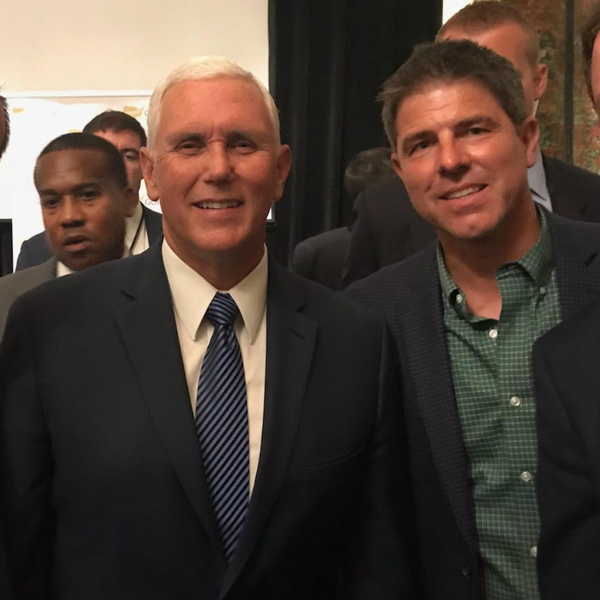
May 11 (Bloomberg) — Could Jamie Dimon really be as clueless as he sounded on the phone yesterday?
Last month, after Bloomberg News broke the story that JPMorgan Chase & Co.’s chief investment office had, in essence, become a ticking time bomb, Dimon, the bank’s chief executive officer, called the press coverage “a complete tempest in a teapot.” That explanation no longer works.
Yesterday, Dimon changed tacks. Losses on the investment office’s “synthetic credit portfolio” had reached $2 billion so far this quarter, though he refused to give any meaningful details on how that had happened. Presumably, these are derivatives of some sort, but even that basic fact was too much for the bank to specify.
What Dimon lacked in information, he more than made up for in assigning blame — to himself and JPMorgan employees. “There are many errors, sloppiness and bad judgment,” he said, as JPMorgan’s stock sank in after-hours trading. “These were egregious mistakes. They were self-inflicted.” He called himself and his colleagues “stupid.”
But there is more to it than that. Either Dimon misled the public about the gravity of the festering trades during his company’s first-quarter earnings call last month. Or he didn’t know what was happening inside the bowels of his own company. History tells us the latter is the norm for Wall Street bosses, though it’s hard to say which is worse.
Don’t bother asking JPMorgan how it accumulated all these losses. That information is proprietary, as if the taxpayers who bailed out the bank in 2008 don’t have any business knowing. Here’s an idea for a new rule: If a too-big-to-fail bank can’t disclose what its trading desk is doing for fear of blowing itself up, then the bank shouldn’t be allowed to do it.
It’s not often that a huge company calls an emergency teleconference on short notice to discuss an intra-quarter trading loss that’s equivalent to only 1 percent of shareholder equity. So when a Deutsche Bank AG stock analyst named Matt O’Connor asked Dimon why the company had disclosed it at all, the answer was bound to be revealing.
“It could get worse, and it’s going to go on for a little bit unfortunately,” Dimon replied. The meaning was clear. Worse could mean disastrous.
Here’s what little Dimon said of the trades in question: “The synthetic credit portfolio was a strategy to hedge the firm’s overall credit exposure, which is our largest risk overall in this stressed credit environment. We’re reducing that hedge. But in hindsight, the new strategy was flawed, complex, poorly reviewed, poorly executed and poorly monitored. The portfolio has proven to be riskier, more volatile and less effective as an economic hedge than we thought.”
There is a tantalizing clue in this language. Read the statement carefully and you can see this wasn’t a bona fide hedge. That means it probably was no different, in substance, than a speculative wager. The definition of an “economic hedge,” literally, is an investment that doesn’t qualify for hedge accounting, meaning its effectiveness at offsetting a given risk isn’t sufficiently reliable. Otherwise the wiggle word “economic” wouldn’t be needed. It’s also conceivable that Dimon didn’t understand the details of the trades, and simply declined to discuss them rather than admit this.
The reason the world learned last month of JPMorgan’s “London Whale” bets on the credit markets to begin with is they had become so big — with as much as $100 billion riding on one side of a single transaction — that the bank’s trades were moving, and maybe even distorting, the market. Some of the bank’s counterparts were so upset about this that they started complaining to journalists.
They seem to have discerned the broad outlines of the trading positions a while ago. Now they are squeezing the bank for maximum gain, while JPMorgan is trying to unwind the trades without losing its skin. JPMorgan can delay coming clean with the basic facts, though they probably will come out eventually. Some congressional committee is bound to subpoena its trading records.
Remember, Dimon said the purpose of the strategy was to protect the company from the risk of a “stressed credit environment.” One curiosity: The footnote on credit derivatives in JPMorgan’s latest quarterly report says the company sold $3.16 trillion of credit protection as of March 31 and bought $2.95 trillion of credit protection on the same underlying instruments.
In other words, on a company-wide basis, JPMorgan was a net seller of credit protection last quarter — to the tune of about $206 billion, up from $116 billion as of Dec. 31. So, JPMorgan doesn’t seem to have been reducing credit risk last quarter. It was taking on more. And if credit defaults suddenly surged, it would lose a lot of money. (Maybe this is what Dimon meant when he said the bank’s strategy was poorly executed.)
How do the chief investment office’s trades fit into all of this? Hard to say. Without knowing what they were, there’s no way to know how to reconcile Dimon’s description of the strategy with the numbers in the footnote.
There really is only one conclusion to draw from all this: Dimon must know he has a lot more explaining to do.
(Jonathan Weil is a Bloomberg View columnist. The opinions expressed are his own.)








